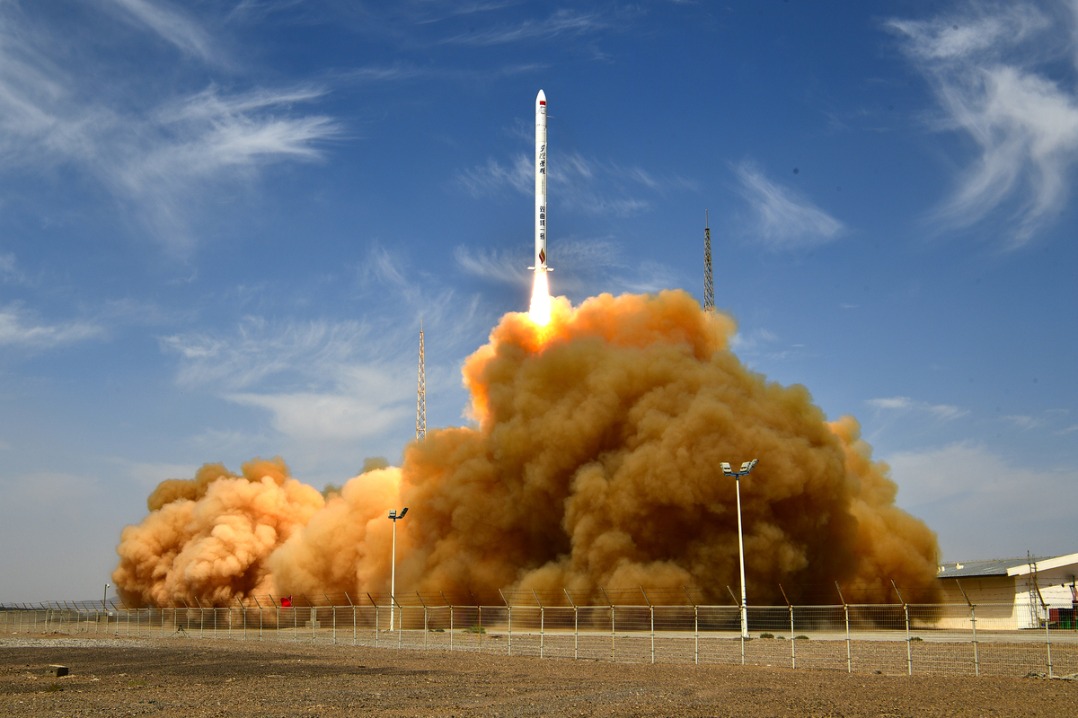Travesty of food bought to be wasted
Southeast Asia looks at how to curb wasteful ways when it comes to edibles

Eva Bachtiar, an Indonesian engineer, was consulting for a farmers' group in 2016 when she learned of how much fresh produce in the country was being thrown away because of a lack of infrastructure and post-harvest technology.
"It's hard to believe that over 19 million poor Indonesians live in hunger while so much food ends up being wasted," Bachtiar said. She cited a 2016 Economist Intelligence Unit report that said Indonesia is one of the world's biggest generators of food waste on a per capita basis.
Bachtiar, in her 30s, then partnered with two environmentalists to launch Garda Pangan (meaning food guardian). Based in the city of Surabaya, the social enterprise collects edible surplus food from local restaurants, bakeries and hotels and redistributes it to poor communities. Since Garda Pangan was founded in 2017 it has collected 19 tons of food and distributed it to more than 100,000 people, Bachtiar said.
Garda Pangan also holds workshops in schools and communities, teaching participants how to avoid wasting food through good meal planning and recycling leftovers.
It is just one of many private sector initiatives that were launched to solve the growing food waste problem in Southeast Asia. Governments have introduced policies such as food redistribution and solid waste segregation as a way of trying to curb the growing volume of food waste. But environmentalists said that these measures are either not strictly enforced or do not deal with the root cause of why households often end up discarding a lot of food: buying more than they need.
The problem of food waste has been highlighted in recent weeks, following China's launch of its Clear Your Plate campaign. Chinese President Xi Jinping has recently again stressed the need for measures and long-term mechanisms that can discourage food waste.
Melody Melo-Rijk, project manager for sustainable consumption and production at the World Wildlife Fund in the Philippines, said urbanization and growing affluence in the fast-growing Southeast Asian economies have promoted consumerism. This, in turn, has increased the volume of food waste.
"People are buying more than what they need because they have stronger purchasing power and higher disposable income," Rijk said.
Most people are also living in urban areas and have lost their connection to the farmers who grow their food. A survey conducted by WWF among school children in the Philippines revealed that most of them think that food comes just from the supermarket, Rijk said.
Sustainability education
The WWF is advocating for food sustainability education to let people know how many resources are used to produce food, encouraging them to be more conscious of their consumption, she said.
"For example, you need 120 days to grow rice. That doesn't include the time you need to prepare the land for planting and the processing and distribution of harvested rice."
Tammara Soma, assistant professor in the School of Resource and Environmental Management at Simon Fraser University, Canada, said higher incomes have changed the way people consume food.
Soma, who has extensively studied Indonesia's food systems, said more affluent Indonesians tend to buy more than one refrigerator-and store more food than what they can eat.
"Indonesians are spending money to dine out, but at the same time they still shop for food to be stored at home."
Mae Ooi, co-founder of Mentari Alam EKO, a manufacturer in Kuala Lumpur of industrial compost machines, said the first step to cutting the volume of food waste is to "buy as you need and use up what you have".
There are unavoidable food waste items such as fruit peels and kitchen scraps, Ooi said. For this her company is designing a smaller compost machine that can be used at home.
Households can compost food waste and use it to grow their own food, she said. Better still, families can jointly compost waste and create a community garden.
"Most people know how to recycle plastic and paper, but they are clueless when it comes to food waste," Ooi said.
The Food and Nutrition Research Institute in the Philippines said the average household in the country wastes 43 grams of rice each day. This means the country's nearly 23 million households throw away more than 900,000 kilograms of rice a day.
Today's Top News
- China and US agree to extend tariff rates after two-day talks in Stockholm
- US, China trade talks candid, in-depth, constructive, says China intl trade representative
- China unveils delegation for Chengdu World Games
- Xi urges youths to champion vision of peace
- All-out relief efforts underway in flood-hit regions
- Crucial to foster stable China-ROK ties: China Daily editorial






























